Getting nervous about an important event or a life change is normal. However, about 40 million Americans suffer from an anxiety disorder, which is more than just an occasional worry. Anxiety disorders can occur in many forms, including generalized anxiety disorder (GAD) — intense worrying you can’t control, and panic disorder — sudden episodes of fear accompanied by heart palpitations and trembling. Here you’ll know how to calm anxiety.
Several strategies can help manage or calm anxiety in the long term, such as talk therapy or medication, that can be helpful for those with anxiety disorders. However, everyone can make other lifestyle changes to reduce stress and calm anxiety, such as exercising regularly, eating a well-balanced diet, and limiting alcohol and caffeine.
You can also take steps to calm anxiety at the onset. You can relax your mind and regain control of your thoughts by trying these 10 expert-backed tips.
Related: Most Effective Anxiety Breathing Exercise
1. Stay in your time zone
Anxiety is a feeling of dread about the future. In order to cope with anxiety, Tamar Chansky, Ph.D., psychologist, and author of Freeing Yourself from Anxiety, suggests focusing on the present. Ask yourself: What’s going on at the moment? Is it safe? Should I do something now? You might wish to schedule yourself an appointment later that day to revisit your worries so those far-off scenarios don’t derail your plans.
2. Relabel what’s happening
When you are experiencing a panic attack, it feels as if you are dying. The panic attack is harmless, temporary, and there is nothing you should do about it, Chansky says. You should also understand that this is the opposite of a sign of impending death — your body is activating its fight-or-flight response, a mechanism that keeps you alive, she says.
3. Fact-check your thoughts

When people have anxiety, Chansky says, they often focus on the worst-case scenario. Consider how realistic your worries are in order to overcome them. Think about how nervous you are about a presentation at work. Say, “I’m nervous, but I’m prepared” instead of “I’m sure to bomb.” She suggests that some things might work out and some might not. In order to learn how to handle your anxious thoughts rationally, you must practice rethinking your fears to get into a habit of doing so.
Related: How to Overcome Fear
4. Take a deep breath in and out
Calm yourself by deep breathing. Chansky says you don’t need to count breaths when performing specific breathing exercises. Simply focus on evenly exhaling and inhaling. It will help you refocus, she says.
5. Follow the 3-3-3 rule
Observe your surroundings and list three things you see. After that, name three sounds that you hear. And finally, move three body parts — your ankle, finger, and arm. When your brain seems to be running 100 miles per hour, Chansky suggests using this mental trick to center yourself, bringing you back to the present moment.
6. Just do something
Get up, walk around, take out the trash — any action that breaks up your train of thought will help you regain a sense of control, Chansky suggests.
7. Stand up straight
Chansky says that when we are anxious, we hunch over to protect our upper body, where our heart and lungs are located. You can immediately counteract this natural reaction by pulling your shoulders back, standing or sitting with your feet apart, and moving your chest. Your body will start to feel more in control when you do this, she explains.
Read: How to Stop a Panic Attack
8. Avoid sugar
Stress may make it tempting to reach for something sweet, but too much sugar can worsen anxious feelings. That chocolate bar can do more harm than good. Drink water instead of candy and eat protein to give your body the slow energy it needs to recover.
9. Ask for a second opinion
If you’re having problems, Chansky suggests you discuss them with a friend or family member. You might find it helpful to speak your fears to someone else so you can see them clearly for what they are. You might also find it helpful to write your fears down.
Read: How To Get Over a Phobia
10. Watch a funny video
Finally, this could be the easiest tactic: Play clips of your favorite comedians or shows. Chansky says that laughter can help calm an anxious mind. Laughter is known to be beneficial for the mental health and well-being of our bodies; one study concluded that humor lowers anxiety just as effectively (or even more effectively) than exercise.
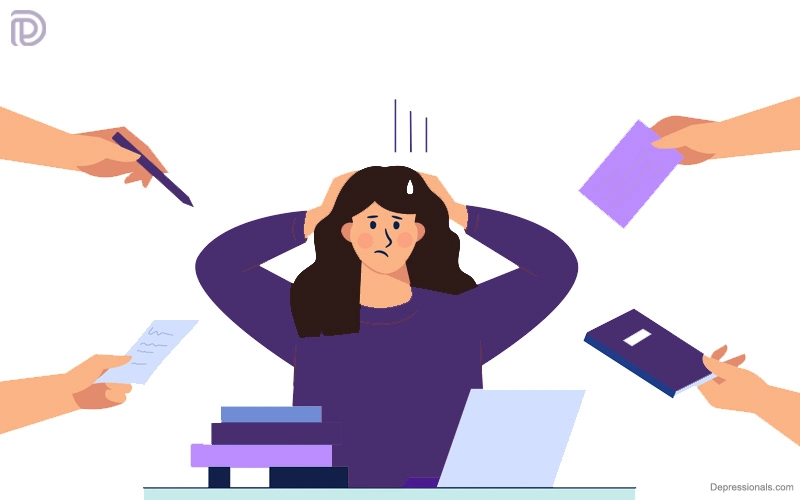
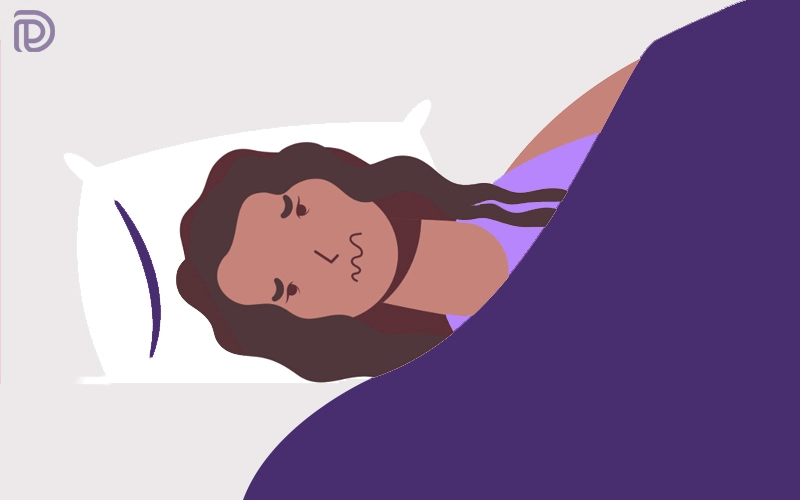
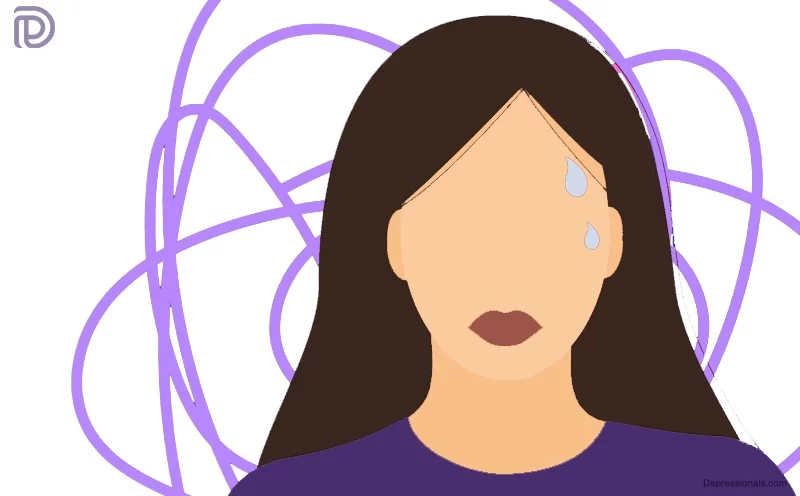
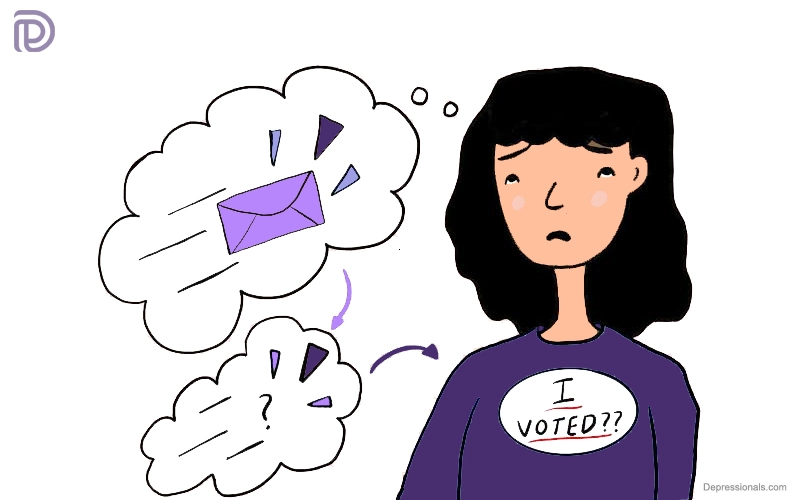
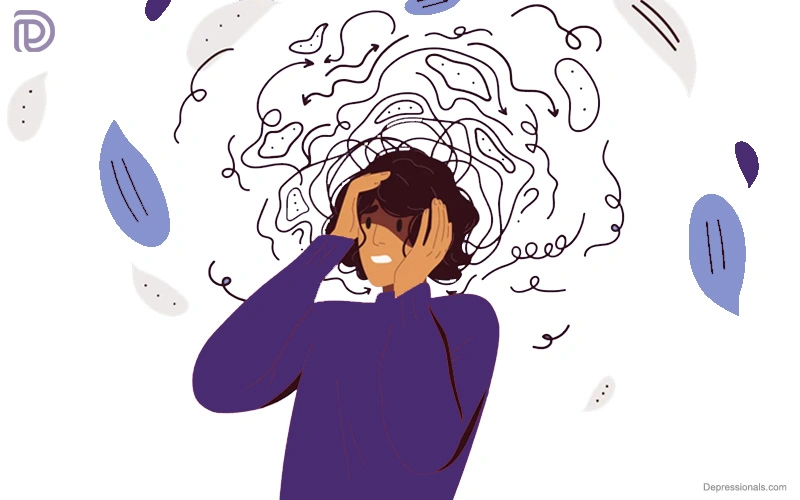

I really enjoyed reading your post and it helped me a lot
You helped me a lot. These articles are really helpful dude.
Thanks for writing this article. I enjoy the topic too.
Interesting blog post.
Thank you for the good writeup. It actually used to be a amusement account it. Glance complex to more delivered agreeable from you! However, how can we communicate?
It?s really a great and useful piece of information. I am glad that you shared this useful information with us. Please keep us up to date like this. Thanks for sharing.
excellent points altogether, you just gained a new reader. What would you suggest in regards to your post that you made some days ago? Any positive?
It is appropriate time to make some plans for the future and it is time to be happy. I have read this post and if I may just I want to recommend you few attention-grabbing issues or tips. Maybe you can write next articles referring to this article. I wish to read even more things about it!
It?s actually a cool and helpful piece of information. I?m glad that you shared this useful information with us. Please keep us informed like this. Thanks for sharing.
It’s the best time to make a few plans for the long run and it is time to be happy. I’ve read this put up and if I may just I desire to counsel you some interesting things or advice. Maybe you can write subsequent articles relating to this article. I desire to learn even more issues approximately it!
I want to thank you for your assistance and this post. It’s been great.
Usually I do not learn article on blogs, however I would like to say that this write-up very pressured me to try and do it! Your writing taste has been surprised me. Thank you, quite great article.
Thank you for writing this post. I like the subject too.
Thank you for writing about this topic. It helped me a lot and I hope it can help others too.
I want to thank you for your assistance and this post. It’s been great.
Please provide me with additional details on the matter
I’ve to say you’ve been really helpful to me. Thank you!
Thanks for the help
You’ve been a great aid to me. You’re welcome!
Your articles are extremely helpful to me. May I ask for more information?
Thanks for posting. I really enjoyed reading it, especially because it addressed my issue. It helped me a lot and I hope it will help others too.
Thank you for your excellent articles. Would you be able to help me out?
Thanks for posting such an excellent article. It helped me a lot and I love the subject matter.
You helped me a lot by posting this article and I love what I’m learning.
You’ve been a great aid to me. You’re welcome!
There is no doubt that your post was a big help to me. I really enjoyed reading it.
Please tell me more about this. May I ask you a question?
You really helped me by writing this article. I like the subject too.
I enjoyed reading your piece and it provided me with a lot of value.
Thank you for writing such an excellent article, it helped me out a lot and I love studying this topic.
Thank you for posting such a wonderful article. It helped me a lot and I adore the topic.
You’ve been very helpful to me. Thank you!
You’ve been a great aid to me. You’re welcome!
You’ve been very helpful to me. Thank you!
Thank you for your excellent articles. Would you be able to help me out?
After exploring a number of the blog posts on your site, I really appreciate
your technique of writing a blog. I book-marked it to my bookmark site list and will
be checking back in the near future. Please check out my web site as well and let me
know how you feel.
Good site you have got here.. It’s difficult to find excellent
writing like yours these days. I truly appreciate individuals like you!
Take care!!
Hi, Neat post. There’s a problem together with your web site in internet explorer, might test this? IE still is the marketplace leader and a large part of other people will omit your magnificent writing due to this problem.
Thanks for your short article.
Very good written article. It will be useful to anyone who usess it, including yours truly :). Keep doing what you are doing – looking forward to more posts.
Very nice post. I just stumbled upon your weblog and wanted to say that I have really enjoyed browsing your blog posts. After all I will be subscribing to your rss feed and I hope you write again very soon!
I’ve recently started a blog, the info you provide on this website has helped me tremendously. Thank you for all of your time & work.
hello! I really like your writing very a lot! proportion we keep in touch more approximately your post on AOL? I need an expert in this space to solve my problem. Maybe that is you! Have a look ahead to peer you.
Hey There. I found your blog the use of msn. This is an extremely neatly written article. I will make sure to bookmark it and come back to learn extra of your useful information. Thank you for the post. I’ll certainly comeback.
Whats up are using WordPress for your site platform? I’m new to the blog world but I’m trying to get started and set up my own. Do you need any html coding knowledge to make your own blog? Any help would be greatly appreciated!
I really like your post. My spouse and I just stumbled upon your website and wanted to say that we have really enjoyed reading your posts. Nevertheless, I’ve subscribed to your blog and I hope to see more posts from you soon!
Thanks for your helpful post. Through the years, I have been able to understand that the particular symptoms of mesothelioma cancer are caused by the particular build up connected fluid between lining of the lung and the upper body cavity. The infection may start inside chest location and spread to other parts of the body. Other symptoms of pleural mesothelioma cancer include losing weight, severe breathing trouble, fever, difficulty ingesting, and swelling of the neck and face areas. It needs to be noted that some people existing with the disease tend not to experience any serious indicators at all.
Your house is valueble for me. Thanks!?
I appreciate, cause I found just what I was looking for. You’ve ended my 4 day long hunt! God Bless you man. Have a great day. Bye
Valuable information. Fortunate me I discovered your web site by accident, and I am stunned why this twist of fate did not happened in advance! I bookmarked it.
Great? I should certainly pronounce, impressed with your web site. I had no trouble navigating through all tabs and related info ended up being truly simple to do to access. I recently found what I hoped for before you know it in the least. Reasonably unusual. Is likely to appreciate it for those who add forums or something, site theme. A tones way for your customer to communicate. Excellent task..
Excellent website. Lots of useful info here. I’m sending it to some buddies and additionally sharing in delicious. And certainly, thank you for your sweet!
Thanks-a-mundo for the blog article. Thanks Again. Great.
Hi there, You have done an excellent job. I will definitely digg it and personally recommend to my friends. I’m confident they will be benefited from this website.
Spot on with this write-up, I truly think this website wants far more consideration. I抣l most likely is once more to learn far more, thanks for that info.
Hey! I know this is kinda off topic nevertheless I’d figured I’d ask. Would you be interested in trading links or maybe guest writing a blog post or vice-versa? My website covers a lot of the same topics as yours and I think we could greatly benefit from each other. If you’re interested feel free to shoot me an email. I look forward to hearing from you! Terrific blog by the way!
I precisely wished to say thanks yet again. I am not sure what I would’ve accomplished without the type of tips and hints shown by you on such a topic. It was before a frightening crisis for me, but being able to view a professional tactic you processed it took me to cry for gladness. Now i’m happier for this assistance as well as have high hopes you find out what a great job your are getting into educating others with the aid of your web site. I am certain you haven’t encountered any of us.
Thank you for the good writeup. It if truth be told used to be a leisure account it. Look complex to far introduced agreeable from you! By the way, how could we keep up a correspondence?
I have mastered some important matters through your blog post post. One other thing I would like to mention is that there are numerous games out there designed specifically for toddler age small children. They consist of pattern acceptance, colors, dogs, and styles. These typically focus on familiarization instead of memorization. This keeps little kids occupied without feeling like they are learning. Thanks
I have been exploring for a little bit for any high quality articles or weblog posts on this kind of area. Exploring in Yahoo I finally stumbled upon this website. Reading this information So I’m glad to express that I’ve an incredibly excellent uncanny feeling I found out just what I needed. I such a lot indisputably will make certain to do not forget this site and give it a glance regularly.
Somebody essentially help to make seriously posts I would state. This is the first time I frequented your website page and thus far? I amazed with the research you made to create this particular publish incredible. Great job!
great issues altogether, you simply gained a emblem new reader. What would you recommend in regards to your publish that you just made some days in the past? Any certain?
I’m not sure where you are getting your all info, but great topic. I need to spend some time learning much more or understanding more. Thanks for the excellent info I was looking for this information for my mission.
Great work! This is the type of info that should be shared around the net. Shame on the search engines for not positioning this post higher! Thanks =)
Thanks for ones marvelous posting! I seriously enjoyed reading it, you are a great author.I will be sure to bookmark your blog and will eventually come back in the foreseeable future. I want to encourage that you continue your great writing, have a nice evening!
Heya! I just wanted to ask to readers if you ever have any trouble with this?
Helpful info. Fortunate me I found your website by accident, and I’m surprised why this twist of fate did not happened in advance! I bookmarked it.
Magnificent points altogether, you just gained a new reader. What would you suggest in regards to your post that you made a few days ago? Any positive?
My coder is trying to convince me to move to .net from PHP. I have always disliked the idea because of the costs. But he’s tryiong none the less. I’ve been using Movable-type on numerous websites for about a year and am worried about switching to another platform.
Woah! I’m really digging the template/theme of this site. It’s simple, yet effective. A lot of times it’s difficult to get that “perfect balance” between user friendliness and visual appeal. I must say you have done a fantastic job with this. Also, the blog loads extremely quick for me on Firefox. Exceptional Blog!
Thanks for revealing your ideas in this article.
Your style is very unique compared to other
folks I have read stuff from. I appreciate you for posting
when you have the opportunity, Guess I will just bookmark this blog.
Pretty element of content. I just stumbled upon your web site and in accession capital to claim that I get actually loved account your weblog posts. Any way I’ll be subscribing on your augment or even I success you get right of entry to persistently quickly.
Thanks for discussing your ideas. These are really helpful.
There’s noticeably a bundle to learn about this. I assume you made sure good factors in options also.
Sweet blog! I found it while searching on Yahoo News. Do you have any suggestions on how to get listed in Yahoo News? I’ve been trying for a while but I never seem to get there! Thank you
Good ?I should certainly pronounce, impressed with your website. I had no trouble navigating through all the tabs and related info ended up being truly simple to do to access. I recently found what I hoped for before you know it at all. Reasonably unusual. Is likely to appreciate it for those who add forums or anything, website theme . a tones way for your client to communicate. Nice task..
That is really fascinating, You’re an overly professional blogger. I have joined your feed and look forward to looking for extra of your fantastic post. Additionally, I’ve shared your website in my social networks!
I should verify with you here. Which is not something I usually do! I take pleasure in studying a post that will make people think. Also, thanks for permitting me to remark!
Hi there, simply become alert to your blog thru Google, and found that it is truly informative. I gonna watch out for brussels. I will appreciate in the event you continue this in future. Numerous other folks will be benefited from your writing. Cheers!